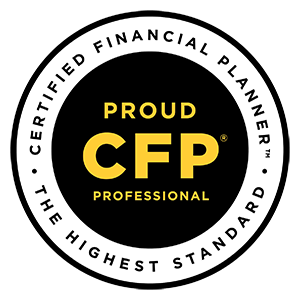Get in touch
Call or Text:
937-404-5180
Email:
dwiedmeyer@kldwealth.com
Ah, mortgage payments—everyone’s favorite monthly reminder that their house isn’t really theirs just yet. If you’re like most of us, you probably dread seeing that withdrawal from your bank account every month, even though you know it’s getting you one step closer to owning your home outright. For many Millennials and Gen Xers, mortgage debt feels like a dark cloud hanging over their financial life, just waiting to rain on the parade.
But what if I told you there’s a simple trick that could help you get rid of those mortgage payments sooner—way sooner—and save you thousands of dollars in interest along the way? Spoiler alert: It’s not some magic scheme or get-out-of-debt-quick hack. It’s just good, old-fashioned extra payments.
Now, before you roll your eyes at the thought of squeezing more money out of your budget, hear me out. Making extra payments on your mortgage can be a game-changer, and the sooner you start, the sooner you’ll be sitting in a mortgage-free home, sipping coffee, and marveling at how much interest you saved. Let’s dive into how this works and why it’s such a smart move, especially for those of us juggling so many financial priorities.
The Mortgage Dilemma for Millennials and Gen Xers
I know, I know. Life is expensive—trust me, I get it. Between raising kids, saving for retirement, paying off student loans (because why not have all the debts?), and trying to enjoy life a little along the way, making extra mortgage payments seems like a tall order. But mortgage debt doesn’t have to be that 30-year ball and chain we all assume it is.
The fact is, mortgage debt is a huge burden for many people, especially for Millennials and Gen Xers. It’s the thing standing between you and total financial freedom. But the good news is that you actually have more control over your mortgage than you think. Just a few extra dollars each month can go a long way toward cutting years off your repayment schedule and freeing up cash flow for other financial goals down the road.
The Power of Extra Payments
Here’s where things get interesting. Let’s say you have a 30-year fixed-rate mortgage. It feels like an eternity, right? Well, by making extra payments, you can dramatically reduce the length of that mortgage—and the amount of interest you’ll pay in the long run.
Let me break it down with a simple example. Imagine you have a $250,000 mortgage with a 4% interest rate. Your monthly payment is around $1,193. If you throw in an extra $100 a month, you’ll shave off about five years from your mortgage term. That’s right—just $100 extra a month can cut off five whole years! And the savings? You’d be looking at nearly $30,000 less in interest. I don’t know about you, but I can think of plenty of better ways to spend $30,000.
It’s all thanks to the power of compounding interest working in your favor. The more principal you pay off early, the less interest you’ll accrue over time. It’s like giving yourself a raise by lowering your future financial obligations.
Why Extra Payments Matter for Millennials and Gen Xers
So why is this such a big deal for our generation? Here are a few reasons:
- Building Equity Faster: By paying down your principal sooner, you build equity faster. That means more of your home’s value is actually yours, and not your lender’s. This can give you more flexibility down the road if you want to sell or borrow against your home’s value.
- Interest Savings : As I mentioned before, the interest savings can be substantial. The more you reduce your principal, the less interest you’ll pay. It’s like reverse magic—just instead of pulling a rabbit out of a hat, you’re pulling extra money out of thin air by paying less interest.
- Financial Freedom : Who doesn’t want to be free from mortgage payments sooner? When you no longer have that monthly bill hanging over your head, you can redirect that cash flow toward other goals, like investing, saving for retirement, or even (gasp!) taking a vacation or two.
- Reduced Financial Stress: Let’s be real—debt is stressful. By shortening your mortgage term, you’re also reducing the length of time you’ll be stressed about making those payments. And less stress equals a happier, healthier you.
- Future Flexibility: Life is full of surprises, and having a paid-off mortgage gives you one less thing to worry about if the unexpected happens. Job changes, medical expenses, and other financial curveballs are easier to handle when you don’t have a mortgage looming over you.
Flexible Ways to Make Extra Payments
There’s more than one way to make extra payments on your mortgage. Here are a few strategies to consider:
- Monthly Extra Payments: This is the most straightforward option. Just add a little extra to your regular payment each month, and make sure your lender applies it to the principal balance.
- Biweekly Payments: By splitting your mortgage payment in half and paying every two weeks instead of once a month, you’ll end up making one extra payment per year. It’s a sneaky but effective way to pay down your mortgage faster.
- Lump-Sum Contributions: Got a bonus, tax refund, or other windfall? Consider throwing it toward your mortgage principal. It’s a great way to make a big dent in your loan balance.
- Round-Up: Another easy option is rounding up your payments. If your monthly payment is $1,193, round up to $1,200 or $1,250. You won’t even miss those few extra dollars, but they can add up over time.
Key Considerations Before Starting
Before you start throwing extra cash at your mortgage, there are a few things to keep in mind. First, check with your lender to make sure there aren’t any prepayment penalties. Some lenders charge fees if you pay off your mortgage early, so it’s important to know the rules before you start.
Also, make sure you’re balancing other financial goals. If you don’t have an emergency fund or you’re not contributing enough to your retirement accounts, focus on those first. After all, paying off your mortgage early is great, but not if it leaves you vulnerable to other financial risks.
How Financial Planning Can Help You Decide
Making extra payments on your mortgage sounds great in theory, but is it the right move for you? That’s where financial planning comes in. A comprehensive financial plan takes into account your entire financial picture, from cash flow and debt to savings and investments, and helps you figure out whether paying down your mortgage is the best use of your money.
A financial planner can help you create a strategy that balances paying off your mortgage with saving for retirement, building an emergency fund, and pursuing other financial goals. It’s all about finding the right balance for your unique situation.
Call to Action
So, are you ready to kick those mortgage payments to the curb sooner rather than later? Let’s talk! Whether you’re thinking about making extra payments or you just want to know where to start, I’m here to help you create a plan that works for your goals and lifestyle. Contact us today to schedule a consultation, and let’s start building your path to financial freedom.



Phone
937-404-5180
706 Deerfield Rd.
Lebanon, OH 45036
Get financial wellness tips, directly to your inbox.
Contact Us
We will get back to you as soon as possible.
Please try again later.
All Rights Reserved | KLD Wealth | Privacy Policy | Form ADV
Advisory services offered through KLD Wealth Management, LLC, an investment adviser registered with the state(s) of Ohio. Advisory services are only offered to clients or prospective clients where KLD Wealth Management, LLC and its representatives are properly registered or exempt from registration.
The information on this site is not intended as tax, accounting or legal advice, nor is it an offer or solicitation to buy or sell, or as an endorsement of any company, security, fund, or other offering. Information provided should not be solely relied upon for decision making. Please consult your legal, tax, or accounting professional regarding your specific situation. Investments involve risk and have the potential for complete loss. It should not be assumed that any recommendations made will necessarily be profitable.
The information on this site is provided “AS IS” and without warranties either express or implied and the information may not be free from error. Your use of the information provided is at your sole risk.
